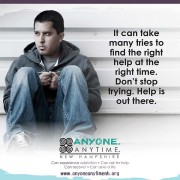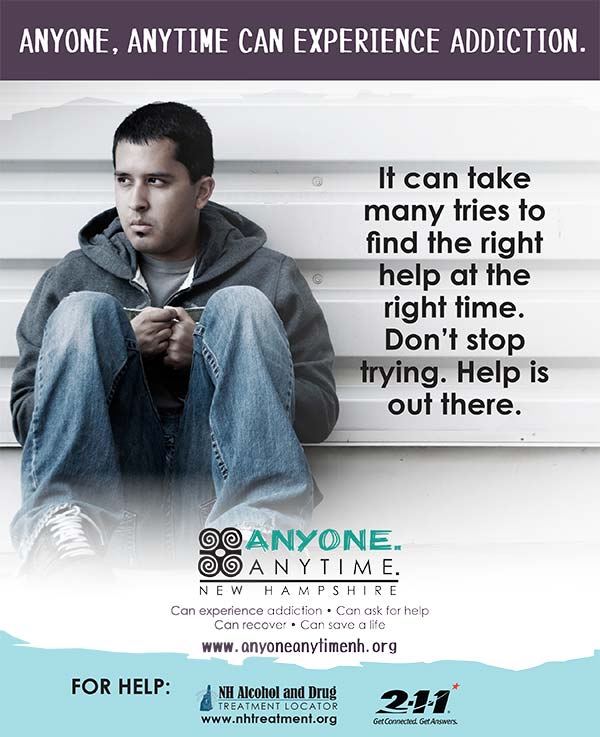SAMHSA Releases New Smartphone Apps
 The Substance Abuse and Mental Health Services Administration (SAMHSA) is the lead agency on behavioral health issues under the Department of Health and Human Services. SAMHSA heads a number of public health initiatives that aim to reduce the impact of mental illness and substance misuse across the nation. In 2016, they’re hoping to make a bigger impact than ever by putting education, prevention and response tools directly into the hands of people who can make a difference – people like you! SAMHSA knows that it is often parents, coaches, primary care doctors and teachers who have the first contact with youth and young adults who are struggling with behavioral health challenges. To equip these individuals with the information they need to create healthy, safe communities, SAMHSA has recently developed four free smartphone apps. These apps are targeted at the issues of underage drinking, bullying and suicide prevention, and emergency behavioral health response.
The Substance Abuse and Mental Health Services Administration (SAMHSA) is the lead agency on behavioral health issues under the Department of Health and Human Services. SAMHSA heads a number of public health initiatives that aim to reduce the impact of mental illness and substance misuse across the nation. In 2016, they’re hoping to make a bigger impact than ever by putting education, prevention and response tools directly into the hands of people who can make a difference – people like you! SAMHSA knows that it is often parents, coaches, primary care doctors and teachers who have the first contact with youth and young adults who are struggling with behavioral health challenges. To equip these individuals with the information they need to create healthy, safe communities, SAMHSA has recently developed four free smartphone apps. These apps are targeted at the issues of underage drinking, bullying and suicide prevention, and emergency behavioral health response.
Talk. They Hear You. is an app designed to prepare parents and caregivers for a conversation with their child about underage alcohol use and its dangers. The interactive app allows you to practice bringing up the topic of alcohol in a simulation, and teaches the do’s and don’ts when it comes to talking to your child about underage drinking. Finally, the app give suggestions of what questions to ask, how you can think about following up, and what key points you should try to get across in a conversation about alcohol.
KnowBullying helps parents and caregivers engage in the most effective bullying prevention strategy – frequent, honest, and caring conversation. Research has shown that parents and caregivers who spend at least 15 minutes a day talking to their child can boost their confidence, build trusting relationships, and develop their skills for facing bullying. The app features conversation starters and tips for having meaningful discussions, as well as ideas about the right time to talk with your kids about bullying. The app teaches the warning signs that can help you recognize if your child is engaging in bullying or is being bullied, and it provides targeted prevention strategies based on age group. There’s also a special section for educators to learn about preventing bullying in the classroom!
Suicide Safe is targeted at primary care providers, who are often the first or only medical contact for individuals struggling with mental health challenges. Almost half of the people who die by suicide have visited a primary care doctor within a month of their death, and SAMSHA’s app is designed to help those providers integrate suicide prevention strategies into routine patient care. The app guides providers through a 5 step evaluation and triage process, and provides sample cases so that doctors can practice using the technique. Suicide Safe also helps providers start the conversation, access important information, and locate nearby treatment resources.
The Behavioral Health Disaster Response App has a multitude of pre-downloaded, easily accessible resources in case of an emergency and limited internet access. The guides, which are specific to many types of traumatic events, also come with tip sheets, information for parents, teachers and first responders, and a directory of behavioral health services in the affected area. The app is designed to help caregivers provide effective support during all stages of a disaster response, and promotes the concept that everyone has a role to play during an emergency.
The PHC encourages teachers, providers, and parents to check out these free apps at http://www.store.samhsa.gov/apps/. As a network of caring community members equipped with trusted information, we can all play a role in supporting those who are living with mental illness.



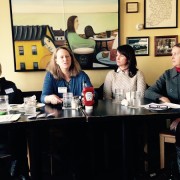
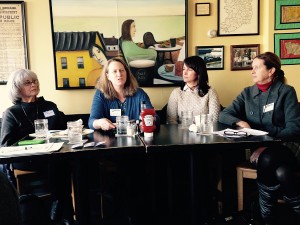

 If your loved one has a heart attack, you call 911 and expect an ambulance and EMTs to respond. If your loved one has a mental health crisis and you call 911, police officers will respond and your loved one may be arrested or transported to an emergency department by patrol car. If the responding officers lack the skills needed to manage a mental health crisis, the situation can escalate and terrible consequences follow, traumatizing all involved. To improve responses to such situations, the city of Memphis created a
If your loved one has a heart attack, you call 911 and expect an ambulance and EMTs to respond. If your loved one has a mental health crisis and you call 911, police officers will respond and your loved one may be arrested or transported to an emergency department by patrol car. If the responding officers lack the skills needed to manage a mental health crisis, the situation can escalate and terrible consequences follow, traumatizing all involved. To improve responses to such situations, the city of Memphis created a 